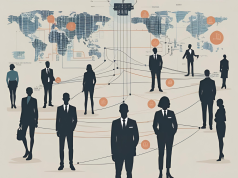As we stand on the precipice of a new era in human history, characterized by advancements in robotics and artificial intelligence (AI), the very fabric of our workplaces is set to change. Automation has always been a part of industrial evolution, but the speed and breadth of this transformation have no historical precedent. This shift presents a dual-edged sword: the potential for significant productivity gains and economic growth on one side, and job displacement with considerable societal implications on the other.
The sectors most at risk are those that involve routine, predictable tasks. Manufacturing, transport, and warehousing have already seen the introduction of robots and advanced automation. But this is just the beginning. White-collar professions, such as customer service and data entry, are also on the automation radar due to advances in machine learning and natural language processing.
Yet, with the disappearance of some jobs, new opportunities will arise. The burgeoning tech industry will demand more software developers, AI specialists, and data analysts. However, the question remains whether these new jobs will be sufficient in number and accessible to the workforce being displaced.
For businesses, the challenge lies in implementing automation in a way that considers the human cost. Transition strategies such as retraining programs are paramount. Companies like Amazon have already committed hundreds of millions of dollars to upskill their workforce, with programs that train workers for high-demand roles within — or even outside — the company. Such initiatives not only help in mitigating unemployment but also align the current workforce with future needs.
Government policies have a critical role in cushioning the impact of automation. This could take the form of job transition assistance, incentivizing companies to retrain rather than replace their workforce, and perhaps even exploring safety nets like Universal Basic Income (UBI) for those whose jobs are most susceptible.
An often-overlooked aspect of automation is the ethical consideration. The pace of technological advancement must be matched with equitable growth. Ensuring that the benefits of automation aren’t concentrated within a select group requires intentional action from both the private and public sectors.
Furthermore, it’s imperative that our education system evolves to prepare students for the future of work. Curriculums need to emphasize STEM skills, creativity, and critical thinking — skills that automation is unlikely to replicate soon. Lifelong learning should become a cultural norm, with opportunities for individuals to continually update their skill sets.
As individuals, staying relevant in an automating world means being adaptable, tech-savvy, and open to learning. It’s about recognizing the inevitability of change and taking proactive steps to embrace it.
Indeed, the revolution will not be easy, nor will it be quick, but it is inevitable. The discourse should not be about halting progress but about steering it so that it benefits the largest number of people. There is an undeniable responsibility upon those at the helm of this change to ensure that when the dust settles, the landscape of work is not one of desolation for many, but one of opportunity and hope.
As leaders in the human capital space, the onus is on us to guide this transition with empathy, foresight, and a commitment to the broader societal good. The future of work will be shaped by the actions we take today, making it imperative to engage all stakeholders in this crucial conversation.



























